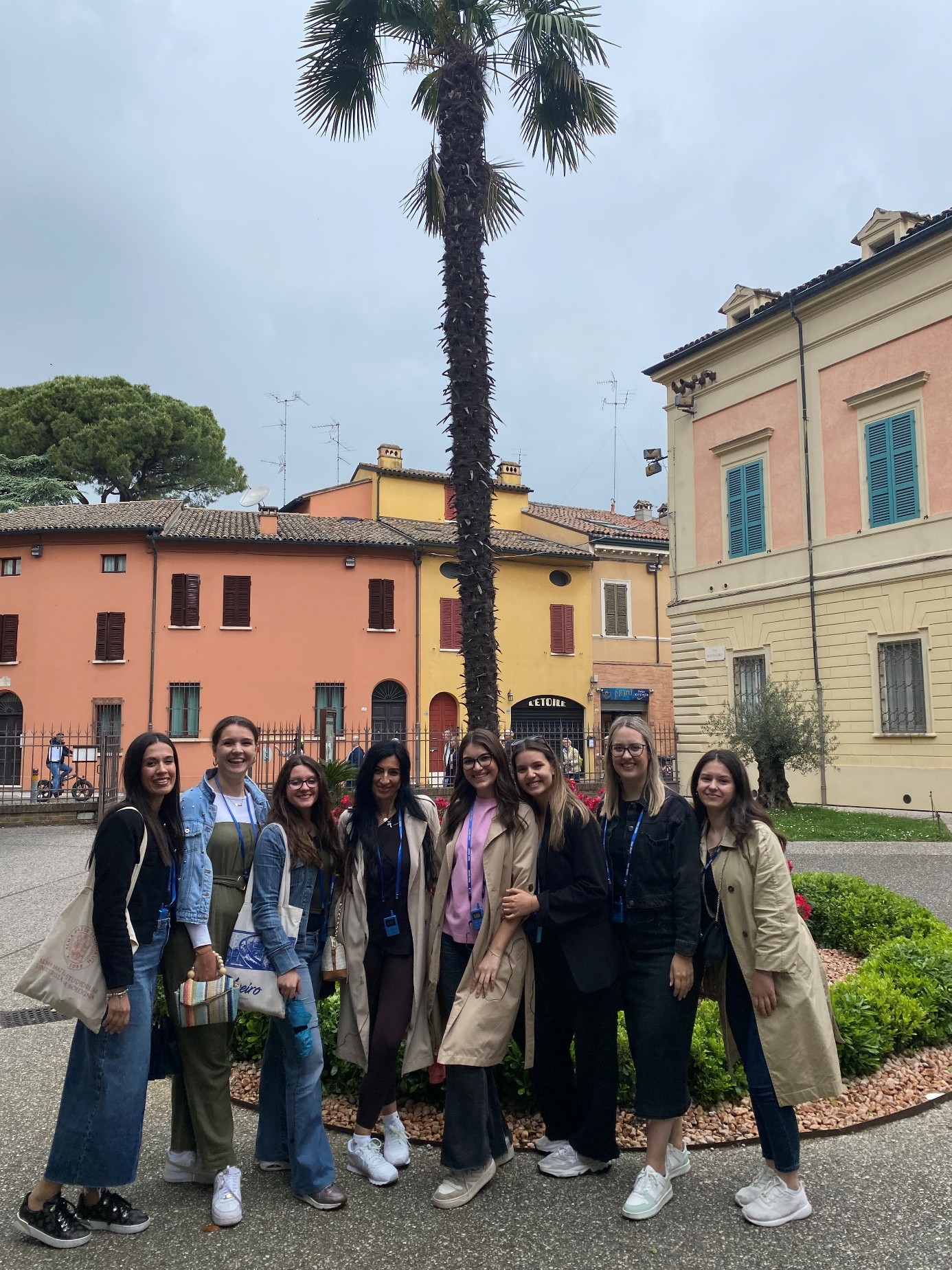“Solo se ti rende felice” – a phrase taken from the Italian language – marked the beginning of this student experience, with the belief and hope that many, even without knowledge of the language, would grasp its message. At first glance, it clearly evokes Italy, its culture and customs, but above all, those few words aim to highlight the lasting imprint created by the merging of knowledge, culture, and friendship.
Seven students of Italian Language and Literature – Ivana Bedalov, Karla Bjeliš, Mihaela Dender, Paula Hrtica, Doris Kuzmanić, Sandra Lončar, and Silvija Mađor – embarked on this small adventure accompanied by their professor from the Department of Italian Language and Literature, Professor Nikica Mihaljević, PhD. It was she who introduced them to the Erasmus BIP project entitled Cultura e formazione per un futuro sostenibile e inclusivo, a programme funded by Erasmus grants, which, in this case, brought together students and professors from four countries – Italy, Croatia, Slovenia, and Spain – and encouraged them to apply.
The theme of the project was “Sostenibilità” – sustainability. Many might assume that the project comprised solely of lectures on ecology and environmental issues in a broad sense, but the experience in which the students participated went far beyond that. The project took place in Forlì, a small Italian town that hosts part of the campus of the University of Bologna, the oldest university in Italy.
The five intensive programme days, from 5th to 10th May 2025, were filled with lectures and workshops exploring various aspects of the theme through the lenses of language and literature, questioning the role of humankind in protecting the environment in the 21st century. Numerous topics were examined from diverse perspectives, each incorporating active student participation. All lectures and workshops were organised by the Department of Interpreting and Translation of the University of Bologna, and held on campus.
The sessions covered a broad range of ecological topics in language and literature, but also included personal testimonies from speakers whose aim was to raise awareness of the importance of empathy in modern society. Each presentation was followed by a workshop that provided a space for dialogue and exchange among students from different cultures. Discussions centred on sustainability, but also on a shared vision of a world founded on greater understanding, empathy, and community.
A particularly memorable moment was a trip to Ravenna, a city steeped in history and known for its many significant monuments. Among other activities, participants had the opportunity to visit a sea turtle rehabilitation centre run by a group of dedicated volunteers, where they encountered turtles, whose lives had been endangered by marine pollution. The purpose of this visit was to highlight how even small gestures by individuals can make a meaningful difference in a broader context.
All activities, including excursions and visits to cultural landmarks, were meticulously organised, as was the entire programme, and the hosts were warm and welcoming. Alongside the official programme, the students had the chance to explore the town, sample authentic Italian cuisine, improve their language skills, and – perhaps most importantly – forge new friendships.
They returned home with symbolic gifts received as part of the BIP project: cloth tote bags, thermal flasks, and other promotional materials from the University of Bologna.
Erasmus BIP is not merely a project – it is an open door to Europe, to new perspectives and experiences that enrich us both personally and professionally. The students unanimously agreed that when opportunities such as this arise, they should be embraced without hesitation. At the end of the journey, they concluded that exploring, travelling, learning, and building connections are of utmost importance, as it is through such projects that one comes to realise the true power of shared knowledge, and how alike we all are in our desire to build a better world.
In the end, what remained with the students was an unforgettable experience that affirmed the phrase stated at the very beginning of this text:
“Solo se ti rende felice” – Only if it makes you happy.
Because true happiness is born when what we learn, experience, and share with others becomes a part of who we are.



 Pristupačnost
Pristupačnost


